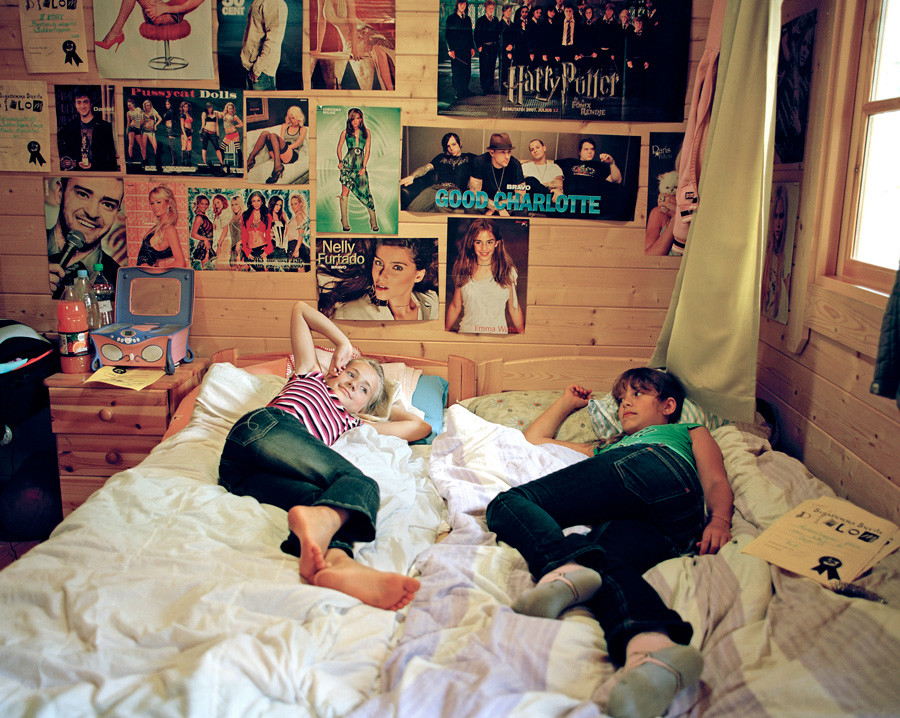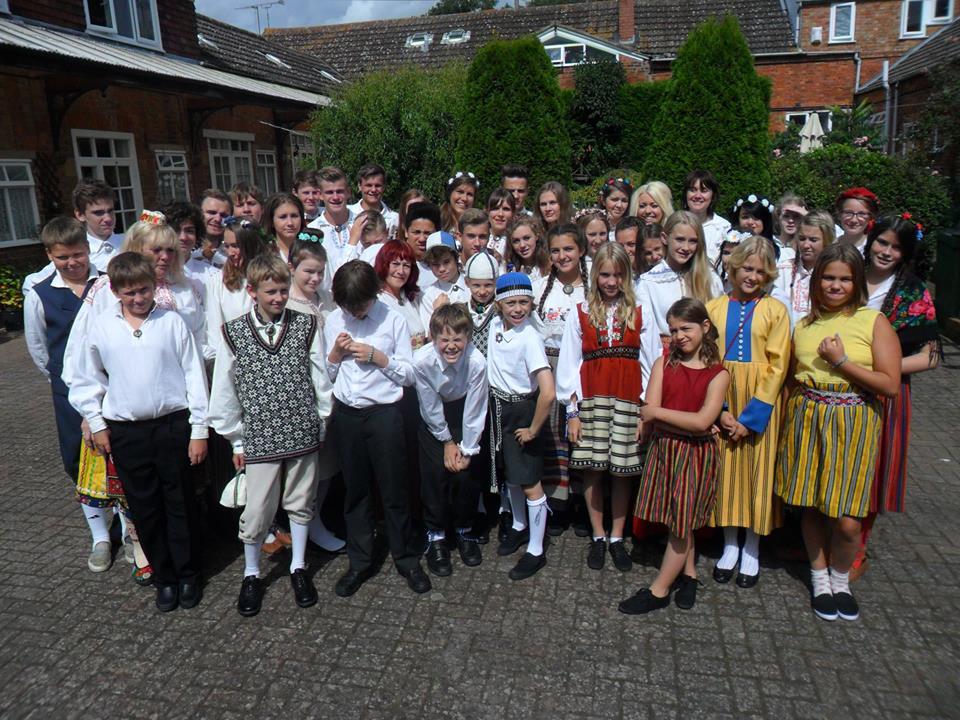Third-generation Estonian émigré Laura Key volunteers as a counsellor at a camp for children of Estonian origin. Here, she writes about upholding Estonian language, culture and traditions in the UK and about how finding a common language seems to be so much easier for children.
Recently, I spent a week as a leader at a summer camp for children of Estonian origin in the UK. My maternal grandparents fled Estonia during the Second World War and ended up settling in England, and I have been involved in the Estonian expat community here for my whole life – I began attending camp when I was six years old.
In recent years, our camp has developed a more international flavour as word has spread across Europe about our activities, and we now have children flying over from Estonia, Germany and Italy to take part.
Õueaiamaa
This year, one thing in particular struck me. Even though these children hail from all sorts of different backgrounds, they manage to communicate with each other. Some of our youngsters do not have a common language – only a few of the British children (many of whom represent the third- or fourth generation born into the expat community) can speak their ancestors’ mother tongue, and not all of our young visitors from abroad have much of a command of English.
Despite this, by the time the campers have spent a few days together, the language barrier is more-or-less swept away as these children find ways to understand each other: by using an intermediary to translate, by using physical gestures or through relying on actions rather than words. In many cases, the children were much better at overcoming this barrier than the adults, who are often reluctant to “make fools of themselves” in trying to communicate with those who have a different mother tongue.

One of the activities during the week was a scavenger hunt, in which the children had to find objects and answer questions in order to earn points. Part of the quiz involved translating words into the three predominant languages of our camp: English, Estonian and German. Naturally, a lot of our campers now have smartphones, so a quick Google to find the answers should have been a simple task but the nuances of different languages became evident when the children started to try and explain the meanings of certain words.
Take the Estonian “õueaiamaa”, for example. Aside from the fact that this word is commonly used as an example of the incredible amount of vowels in Estonian (NB: the pronunciation is along the lines of “owe-eh-eye-aah-maa”), the meaning itself proved tricky for the English and German speakers to deduce. “A garden”, one group offered. Sort of, but not specific enough. “A greenhouse?” ventured another. Definitely not – the word connotes the outdoors. No single English word was sufficient to explicate this concept.
Why, then, don’t we have a word for this phenomenon in our own language? Part of the reason is that, unlike English, Estonian commonly uses compound nouns in place of longer phrases and sentences. Indeed, we would have to say “an area of outdoor garden space for growing fruit and vegetables” to convey a similar meaning.
The closest the campers were able to get was “allotment”, which became the accepted answer, but this still isn’t quite right. After all, “allotment” suggests land not owned by the user but rented out by a council or cooperative, which is often situated away from one’s own property. An “õueaiamaa”, however, can be in your own back yard.
A natural ability to communicate
This term might be an obscure example (for the record, our camp is held in the grounds of a country manor house, making the word more relevant), but it demonstrates one thing: that there is a lot of potential for shades of meaning to become lost in translation. How, then, do two children who could say little beyond “hello” to each other at the start of the week become good friends by the time they go home?
Part of it seems to be in the natural ability to communicate which children have and which seems to diminish with age. These youngsters are unhampered by the embarrassment which many adults feel – the fear of “getting it wrong” was prevalent in the adult leaders, who would often prefer to ask a bilingual member of the camp to translate for them rather than relying on their own ability to explain things to campers of foreign nationalities. This made me wonder, then, do children rely less on language as a communication tool than adults?

In the middle of the week, one of our Estonian campers had a bit of a wobble and was tearful about being away from home. I was called to assist and, in doing so, was followed by one of our younger campers from Germany. The German child has a slight command of Estonian and the Estonian girl speaks a little English, yet neither really has the ability to communicate fully with the other in the same tongue.
The German girl was so eager to comfort the Estonian girl, however, that I sat, watched and listened as she relayed an anecdote through a mixture of German and Estonian about a time when she had been homesick and how she had overcome her sadness, a story which was peppered with various physical gestures to help the child get her point across.
It was a touching moment and, sure enough, when the story was finished, the Estonian girl wiped away her tears, gave us a smile and trotted off to her dormitory. Despite the language barrier, each girl knew exactly what the other thought, felt and meant.
Meeting face to face
Communication is possible, even when language is limited. Maybe we, as adults, could learn something from these two little girls meeting each other for the first time in a foreign land – particularly in the age of the internet.
Sometimes the spoken or written word is not enough; meeting face to face offers the opportunity for levels of communication that are impossible through linguistic symbols alone. I love everything about language and find it a fascinating medium, but it’s not the only way to reach out to someone – and we should remember this both in business and in our personal lives, otherwise we risk alienating people who just might be able to teach us a thing or two.
Cover: A summer camp for children of Estonian origin in the UK. Photo by Laura Key.


Surely õueaiamaa is a kitchen garden. The fact that younger generations may have never seen one doesn’t mean English doesn’t have a name for it!
In Estonian the word has the three key-words; outside the house – garden/yard – land/ground. I am curious to find the English word for it.
I live in Estonia and we don`t use that word much. Why must poor foreign kids learn that?
When Toronto kids were in Song Festival they realized their Estonian was oldfashion. I think kids must learn language what is modern and language what help them talk to to youth and children in modern Estonia. I understand that õueaiamaa and hobusekoppel are nice words for grownup linquist but it is not common theme between modern estonian teenagers and children as it was 100 years ago.
Keep in mind, there has been a seperation between Estonian in Canada and Estonian in Estonia, I learned the older versions of the language, as my mother had known it growing up. There really isnt much you can do, as certain things were invented or differentiated between the generations.